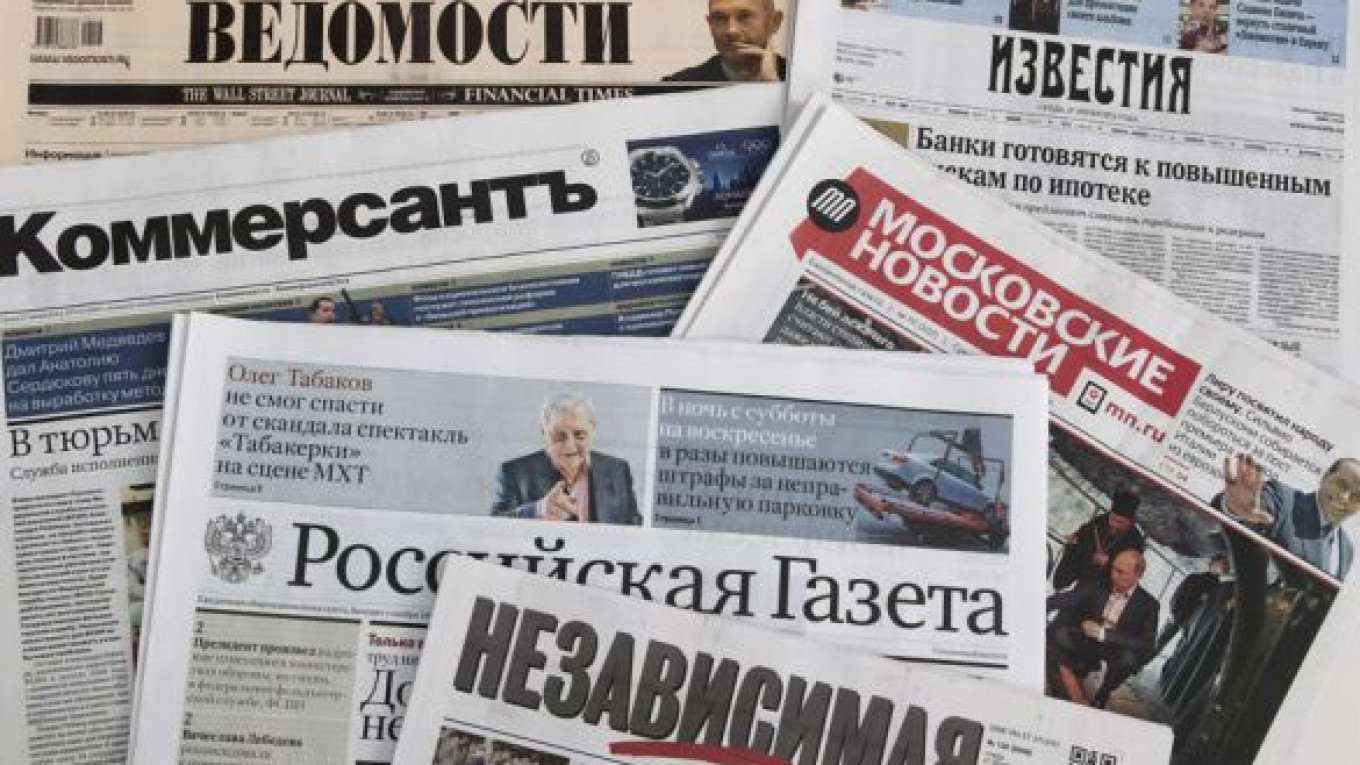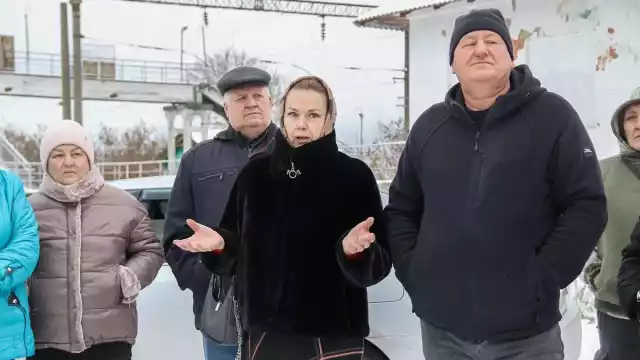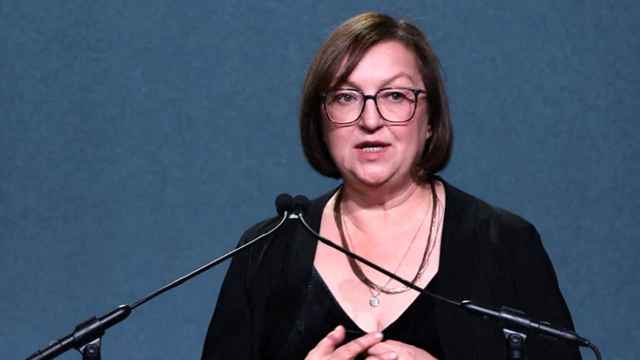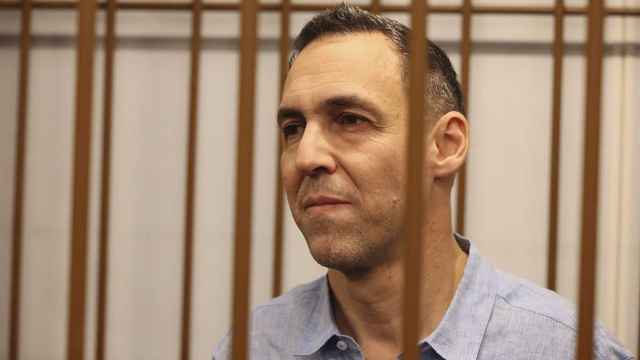Kommersant
1. Ilya Barabanov et al. article headlined "Questionable peninsula" reports on the journalists' visit to Crimea to cover preparations for the March 16 referendum on the peninsula. They faced problems already on the Ukrainian border, the report says; pp 1, 7 (1,791 words).
2. Kirill Melnikov et al. article headlined "Gas trader prepared for export" says that Ukrainian businessman Dmytro Firtash, who controlled Russian gas supplies to the country in 2005-11, has been detained in Vienna on request by the U.S., where he is suspected on corruption. He may be extradited there today; pp 1, 6 (962 words).
3. Yelena Kovaleva and Ivan Kuznetsov article headlined "Prosecutor General's Office takes out mortgage" says that the Prosecutor General's Office's check has revealed numerous violations in the performance of the Home Mortgage Lending Agency, or AIZhK, and wants the government to take measures to improve the performance of the agency, including staff reshuffles; pp 1, 12 (820 words).
4. Natalia Korchenkova article headlined "Not enough votes to ban Russian channels" says that the Ukraine's National Council for Television and Radio Broadcasting has failed to officially prohibit the broadcast of Russian television channels due to a lack of quorum. The next meeting will be held on March 14; p 6 (366 words).
5. Sergei Goryashko and Maxim Ivanov article headlined "Deputies and senators ready to help Crimean central electoral commission" says that 20 State Duma deputies, nine Federation Council senators and six representatives from the Public Chamber will act as observers at the March 16 referendum in Crimea; p 6 (553 words).
6. Maxim Ivanov article headlined "President sums up Olympics and Ukraine" says that a public opinion poll conducted by the independent pollster Levada Centre and the All-Russian Public Opinion Research Centre, or VtsIOM, has shown that President Putin's approval rating has reached 72 percent by mid-March. The number of Russians, who think that Russia and Ukraine should merge into a single state, has doubled to 28 percent as compared to 2010; p 6 (521 words).
7. Article by the newspaper's political section headlined "Governors take peninsula under patronage" says that the authorities in a number of Russian regions have expressed willingness to launch joint projects with Crimea. For the time being, Russian regions' cooperation with Crimea is limited to humanitarian and financial aid, the article says; p 6 (561 words).
8. Olga Kuznetsova interview with Mustafa Dzhemilev representing the Tatar community in Crimea, headlined "'We will never leave Crimea'", who sums up the results of his visit to Russia, speaks about his conversation with President Putin over the phone and shares his view of the March 16 referendum in Crimea; p 7 (427 words).
9. Yelena Chernenko interview with NATO Deputy Secretary General Alexander Vershbow, headlined "'We have not closed door to Russia'", speaking about Russia-NATO joint projects that might be scrapped if the Ukraine crisis escalates and reasons behind NATO stepping up cooperation with Kiev; p 8 (587 words).
10. Ivan Safronov article headlined "Ukraine tests armed forces" says that a few days before the referendum in Crimea, Ukraine has begun a military drill. A source in the Russian General Staff of the Armed Forces says that the drill is aimed to determine the actual combat capacity of the Ukrainian army, which is not good from the Russian military's viewpoint; p 8 (474 words).
11. PIR Centre president Vladimir Orlov commentary published in the regular opinion column headlined "Price of issue" contemplates whether the 1994 Budapest Memorandum on Security Assurances, pledging to respect Ukraine territorial integrity, and the Trilateral Statement signed by Russia, the U.S. and Ukraine are in force now given the Ukraine crisis; p 8 (455 words).
12. Kirill Belyaninov and Yelena Chernenko article headlined "Probable things from opponents" previews Foreign Minister Sergei Lavrov's meeting with U.S. Secretary of State John Kerry in London on March 14 and outlines four options of probable sanctions being considered by the West against Russia over its stance on the Ukraine crisis and Crimea's future; p 8 (794 words).
13. Olga Shetopal article headlined "'Quick Mail' not to reach Kiev" says that the Ukraine's National Bank has banned Ukrainian banks from using the Russian system of postal money transfer Quick Mail, owned by Raiffeisenbank; p 9 (523 words).
14. Yegor Popov et al. Article headlined "Spare parts return to Russia" says that Russian defense enterprises are considering a strategy to substitute Ukraine-made components for the aircraft and ship building sectors amid worsening Russia-Ukraine relations. They fear that Ukraine may restrict supplies of that kind to Russia; p 9 (1,208 words).
15. Yury Barsukov article headlined "Polite people put to sea" says that the Crimean authorities, which are planning to nationalize the gas company Chernomorneftegaz, have taken control of the company's assets and replaced the head of the company. The article also features Russian experts' comments on the future of the company; p 9 (603 words).
Vedomosti
1. Maxim Tovkaylo and Margarita Lyutova article headlined "Turning back to West" says that Russia is preparing for tough sanctions from the West over its stance on Ukraine and on Crimea and is planning measures in response, including boosting cooperation with China and Southeast Asia; p 1, 4 (450 words).
2. Editorial headlined "Thank you, colleagues" comments on the unexpected dismissal of the editor in chief of the Lenta.ru online media; p 1, 6 (350 words).
3. Polina Khimshiashvili et al. article headlined "Crimea is ready for Russia" says that the Crimean authorities are sure that Crimeans will back a merger with Russia at the March 16 referendum. The new Ukrainian authorities consider the referendum illegitimate and are trying to come to terms with Russia about Crimea's future, but experts say this is almost impossible; p 2 (400 words).
4. Anastasia Kornya and Polina Khimshiashvili article headlined "Special invitation" says that representatives from 21 countries will act as observers at the March 16 referendum in Crimea; p 2 (320 words).
5. Alexei Nikolsky article headlined "Showcase drill" says that the Defense Ministry has decided to intensify combat training of troops deployed in Russian regions close to Ukraine. This is meant to exert pressure on Kiev in the run-up to the March 16 referendum in Crimea, experts say; p 3 (350 words).
6. Editorial headlined "Sanctions for spontaneity" says that pending Western sanctions and Russia's probable losses from them make it possible to conclude that the Russian authorities' policy towards the Ukraine crisis and Crimea's future is not thought-out, but extempore. This signals to the international community only one thing — that Russia's actions are hard to predict, the article says; p 6 (250 words).
7. Kirill Rogov article headlined "Dardanian present to Russian inhabitants" says that Putin's campaign to return Crimea to Russia is meant to restore people's trust in him and stir up anti-Western patriotism among Russia; p 6-7 (900 words).
8. Andrei Babitsky article headlined "Guilty without war" says that the Russian authorities do not admit any political compromises and rivalry of interests and prefer repression. This state of society is a zone of political comfort for Putin, the article says; p 7 (420 words).
9. Anastasia Golitsyna article headlined "Lenta.ru without journalists" says that the editorial staff of the Lenta.ru online media has resigned en masse in protest against the dismissal of the editor in chief; p 19 (350 words).
10. Lilia Biryukova and Alexei Nikolsky article headlined "Sociology from FSO" says that the Federal Guard Service plans to conduct large-scale polls on Russians' attitude to the work of the president and of the government. These polls are not meant to replace but rather to add to traditional sociological research; p 3 (430 words).
Izvestia
1. Svetlana Subbotina interview with former Audit Chamber head Sergei Stepashin, headlined "'West had better recall bombing of Yugoslavia and Libya'", who speaks about the ongoing Paralympic Games in Sochi, the need for reviving an ideology in Russia and humanitarian aid to Ukraine among other things; pp 1, 5 (2,389 words).
2. Natalia Bashlykova article headlined "Russian lawmakers observe referendum" says that State Duma deputies and Federation Council senators who will act as observers at the March 16 referendum in Crimea have already arrived in Crimea to prepare for the voting; pp 1-2 (772 words).
3. Pavel Panov article headlined "Governors permitted not to report to Kremlin on presents" says that regional heads will no longer send to the presidential administration presents they have got for them to be assessed; pp 1, 5 (685 words).
4. Yelena Malai article headlined "Vladimir Putin's rating exceeds 71 percent" says that according to the All-Russian Public Opinion Research Centre, or VTsIOM, Putin's approval rating has reached 71.6 percent thanks to Russia's victory in the Winter Olympics, Russian athletes' successful performance at the Paralympic Games, and his stance on the Ukraine crisis and Crimea's future; p 2 (519 words).
5. Dmitry Runkevich and Yelena Malai article headlined "U.S. senators to become travel-banned" says that in response to the probable adoption by the U.S. Senate of tough sanctions against Russia over its stance on Ukraine and Crimea, the State Duma may ask the Russian Foreign Ministry to ban those U.S. senators who will back sanctions from entering; p 2 (538 words).
6. Sergei Podosenov article headlined "Russians afraid of civil war in Ukraine" says that a public opinion poll conducted by the All-Russian Public Opinion Research Centre, or VtsIOM, has shown that 62 percent of Russians think that Ukraine is heading for a civil war. Also, 44 percent of respondents against 69 percent in 2004 consider Russians and Ukrainians fraternal peoples; p 2 (541 words).
7. Oleg Karmunin interview with Culture Minister Vladimir Medinsky headlined "'At least 99 percent of cultural figures think differently than 'talkative minority"", who speaks about a collective letter in support of Putin's position on Ukraine and Crimea signed by a number of Russian cultural figures, which has caused public outcry; p 3 (826 words).
8. Konstantin Volkov article headlined "Dushanbe adopts program for deeper learning of Russian language" focuses on Federation Council speaker Valentina Matvyenko's ongoing visit to Tajikistan; p 11 (620 words).
9. Daria Tsoi and Maria Gorkovskaya article headlined "Vienna does not link Dmytro Firtash's arrest with developments in Kiev" says that Ukrainian businessman Dmytro Firtash has been detained in Vienna on request by the U.S. The Viennese police have denied that the detention has something to do with the Ukraine crisis; p 11 (375 words).
10. Yekaterina Dontsova interview with former U.S. Assistant Secretary of the Treasury Paul Roberts , headlined "'Diplomacy is not working in this way, it is imperialism'", who speaks about pending U.S. sanctions against Russia over its stance on Ukraine and Crimea and the financing of the Ukraine crisis by Washington; p 11 (684 words).
11. Alexander Chalenko article headlined "FBI begins presidential campaign in Ukraine" comments on the detention of Ukrainian businessman Dmytro Firtash in Vienna given the Ukraine crisis; p 12 (695 words).
12. Political analyst Gleb Kuznetsov article headlined "'New patriots'" says that the Ukraine crisis has shown that the national elite does exist in Russia and they are united as regards the vector of Russia's development as a dominant on the post-Soviet space and Europe in the future and their attitude to President Putin; p 12 (883 words).
13. Political analyst Oleg Bondarenko article headlined "Crimea as national idea" says that a national idea that has been looked for over the past 20 years has finally been found in Crimea. Russians' support for Crimea and Sevastopol joining Russia has turned to be that very spiritual bond that really unites the nation; p 12 (665 words).
14. Svetlana Povoraznyuk article headlined "Ukrainian hackers attack RIA Novosti and Channel One" says that Russia's leading Channel One television's website has been brought down. The management of the channel says that it is Ukrainian hackers who are behind the attack; p 13 (396 words).
Nezavisimaya Gazeta
1. Vladimir Mukhin article headlined "Kiev scares Crimea with 'Uragan' [multiple-launch rocket system]" says that the Ukrainian parliament has passed a bill on establishing the National Guard, which is probably meant to substitute the army, which has poor combat capacity and low morale. The article also looks at the prospects of using the National Guard to wreck the March 16 referendum in Crimea and of using Uragan and Smerch multiple-launch rocket systems; pp 1-2 (1,161 words).
2. Yury Paniyev article headlined "Kerry sets emergency rendezvous with Lavrov in London" looks ahead at a meeting between Foreign Minister Sergei Lavrov and his U.S. counterpart John Kerry in London to discuss the Ukraine crisis and describes measures of support for Ukraine that Washington is planning to take; pp 1, 8 (820 words).
3. Alexei Gorbachev article headlined "Opposition opposes interference in Crimea's future" says that the opposition will hold a Peace March rally in central Moscow on March 15 in protest against the Russian authorities' policy towards Ukraine. Maidan protesters and, probably, a popular Ukrainian band will come to Moscow for the rally; pp 1, 3 (518 words).
4. Tatyana Ivzhenko article headlined "Ukrainian presidential election may be postponed to December" says that the presidential election in Ukraine may be postponed from May 25 to December 7 because no candidates for the presidency have been nominated so far and the situation in Crimea does not allow for carrying out a proper election campaign; pp 1, 7 (1,229 words).
5. Viktoriya Panfilova article headlined "Beijing takes Central Asia into the gas circle" says that China and Tajikistan have signed an agreement on setting up a joint venture to build and use a gas pipeline, which is a section of the gas pipeline, through which gas is delivered from Turkmenistan to China. The article also features a Russian expert's comment on the issue; pp 1, 7 (603 words).
6. Ivan Rodin article headlined "'Subjective' activists asked not to worry" says that a bill on public control in Russia has been submitted to the State Duma. Only state-controlled organizations will exercise such control, while civil activists will be voluntary inspectors and experts, the article says; pp 1, 3 (663 words).
7. Tatyana Dvoinova article headlined "Far East afraid of yet more flooding" says that heavy floods are threatening Russia's Far East in spring; p 2 (409 words).
8. Editorial headlined "Censorship organizes purges" comments on the use of holy writs for political purposes given the recent incident in St. Petersburg, where a local lawyer has asked the prosecutor's office to check the Bible for signs of extremism; p 2 (482 words).
9. Eduard Lozansky article published in the regular Carte Blanche column headlined "Is there a way out from the Ukraine crisis?" criticizes the U.S. and the EU stances on the Ukraine crisis and says that if U.S. President Barack Obama begins to act as a true statesman and stops promoting himself, for instance by meeting new Ukrainian Prime Minister Arseny Yatsenyuk, a way to settle the Ukraine crisis may be found; p 3 (858 words).
10. Anastasia Bashkatova article headlined "Visa regime stiffens between Russia and Ukraine" says that Ukraine has lately seriously toughened control on the borders with Russia, Moldova and Belarus. Partial border closure or the introduction of a visa regime may be next, the article says; p 4 (892 words).
11. Kirill Velikanov article headlined "Federation or death" says that federalization and a free choice of official languages are the best way out from the Ukraine crisis; p 5 (2,511 words).
12. Anton Khodasevich article headlined "Lukashenka ready to engage in conflict" says that Belarus is ready to enter a war against Ukraine on the side of Russia; Belarusian experts comment; p 7 (696 words).
13. Anna Gushchina article headlined "European skeptics invited to Crimea" says that Russia has offered representatives from the EU far-right wing to become foreign observers at the March 16 referendum in Crimea; p 8 (416 words).
Rossiiskaya Gazeta
1. Igor Yelkov article headlined "Day after tomorrow" reports on the state of affairs in Crimea in the run-up to the March 16 referendum there; pp 1, 8 (751 words).
2. Tamara Shkel article headlined "Eye of the people" gives details of a bill on public control, submitted by President Putin to the State Duma, and looks at its possible effects; p 2 (500 words).
3. Yury Gavrilov article headlined "Jump to Arctic Ocean" says that airborne troops deployed in Ivanovo Region will hold a drill at the Temp airfield on the Novosibirsk islands, where 300 soldiers and officers will jump onto platforms in the Arctic Ocean; p 3 (657 words).
4. Tatyana Smolyakova article headlined "There will be no end of light" says that Russia will help Crimea with electricity supplies; experts warn that there could be serious problems with energy supplies in Crimea; p 8 (400 words)
5. Unattributed interview with U.S. expert Steven Cohen headlined "Who crossed the red line?" who criticizes the West's stance on the Ukraine crisis and defends Russia's actions in Crimea; p 9 (2,314 words).
6. Albina Petrova interview with Ukrainian academic Petr Tolochko, headlined "In country of comrade Mauser" speaking about lessons that should be learnt from the Ukraine crisis; p 10 (2,123 words).
7. Article by Deputy Prime Minister Dmitry Rogozin headlined "Take a look into the deep" looks at how Russia is exploring the global ocean; p 17 (2,523 words).
Moskovsky Komsomolets
1. Yeva Merkacheva article headlined "Police war: hidden threat" describes how criminal cases on charges of bribery against officials have been framed up by the Interior Ministry's main directorate for economic security and combating of corruption; pp 1, 4 (3,044 words).
2. Alexander Minkin article headlined "Enemy of peoples" looks at opposing stance of two collective letters, one supporting Putin's position on Ukraine and Crimea signed by a number of Russian cultural figures, the other signed by members of the "intelligentsia", speaking out against war; also looks at U.S.'s stance on Crimea, cost of Crimea joining Russia; pp 1, 3 (615 words).
3. Olga Bozhyeva interview with Vyacheslav Bohuslayev, a Ukrainian lawmaker from the Party of Regions and the head of Ukraine's largest enterprise Motor Sich, headlined "Russia and Ukraine unite", speaking about continuing Russia-Ukraine defense cooperation despite the Ukraine crisis; pp 1, 5 (1,801 words).
4. Dmitry Katorzhnov article headlined "Targamadze drank to Stalin" says that Konstantin Lebedev, an associate of Left Front leader Sergei Udaltsov, has testified against Udaltsov and his fellow activist Leonid Razvozzhayev, charged with the organization of the 6 May 2012 mass riots on Moscow's Bolotnaya square; p 2 (541 words).
5. Mikhail Zubov interview with Valery Ryazansky, who heads a delegation of Russian senators to Crimea who will act as observers at the March 16 referendum, headlined "Nine senators for one referendum", speaking about the delegation's missions and his impressions; p 3 (488 words).
6. Renat Abdullin and Melor Sturua article headlined "Yatsenyuk at the White House: a visit or sanction?" focuses on Ukrainian Prime Minister Arseny Yatsenyuk's visit to the U.S. and his meeting with the U.S. president. Russian expert Fyodor Lukyanov and Deputy Economic Development Minister Alexei Likhachev comment on the issue; p 7 (1,365 words).
7. Vladimir Shakulov interview with acting chairman of the Sevastopol city administration Dmitry Belik, headlined "What will Sevastopol look like?", speaking about the March 16 referendum on the city joining Russia; p 7 (777 words).
Novaya Gazeta
1. Andrei Kolesnikov article headlined "Torn Lenta" looks at the recent dismissal of the editor in chief of the influential news portal Lenta.ru which was followed by resignation of the majority of the website's writing staff; p 2 (700 words).
2. Opposition leader Grigory Yavlinsky op-ed headlined "War with Ukraine criminal and inadmissible" criticizes Russia's actions in Crimea; p 5 (500 words).
3. Alexei Polukhin and Diana Khachatryan article headlined "Black swan merger" is a collection of experts' opinions outlining a bleak economic perspective for Crimea and Russia following their possible merger; pp 8-9 (2,300 words).
RBK Daily
1. Unattributed article headlined "Block on Ekho and Navalny" is a factual piece covering bans on several liberal websites that were enacted in Russia on 13 March; p 1 (400 words).
2. Timofei Dzyadko et al. article headlined "Dmytro Firtash eight years later" profiles Ukrainian oligarch Dmytro Firtash who was arrested in Vienna by request of the FBI on 13 March; pp 1, 5 (800 words).
3. Stepan Opalev et al. article headlined "Voice to Russia" looks at the situation in Crimea days ahead of its vote on joining Russia; p 2 (1,000 words).
4. Alexei Bayer op-ed headlined "Russia's economy will collapse with or without Crimea" says Crimea's merger with Russia could lead to a quicker economic demise for Russia; p 2 (1,200 words).
5. Natalia Starostina and Tatyana Ternovskaya article headlined "Crimean deposit" is a summary of expert opinions on the financial situation in Crimea following its possible merger with Russia; p 6 (1,100 words).
Komsomolskaya Pravda
1. Alexander Grishin article headlined "Americans preparing sabotage act against Ukrainian army to frame Russia" covers recent information, allegedly coming from the Anonymous hacker group's Ukraine division, that the U.S. and Ukrainian radicals were planning to stage a ruse to discredit Russia; pp 1, 7 (900 words).
2. Former U.S.S.R. president Mikhail Gorbachev open letter to dean of the Moscow State University's school of television Vitaly Tretyakov headlined "Supplicant role you suggest is not fitting for me" talks about the coverage of events in Crimea in Russian media; p 2 (400 words).
3. Alexander Rogoza and Andrei Ryabtsev interview with self-proclaimed Crimean prime minister Sergei Aksyonov headlined "Peninsula may become free economic zone" talks about Crimea's prospects following its possible merger with Russia; p 3 (700 words).
4. Alexander Rogoza and Andrei Ryabtsev interview with the first president of the Republic of Crimea Yury Meshkov headlined "We were occupation zone for Kiev" fervently welcomes the upcoming referendum in Crimea; p 4 (250 words).
5. Vladimir Demchenko article headlined "Sevastopol on defensive again, this time against provocateurs" describes a day in the life of a pro-Russian activist in Crimea; p 5 (600 words).
6. Alexander Gamov interview with former chairman of Russia's Supreme Council (1991-1993) Ruslan Khasbulatov headlined "Tell Obama Crimea could have merged with Russia 20 years ago!" addresses the subject of the Crimean referendum; p 8 (1,200 words).
March. 14, 2014 / BBC Monitoring / ©BBC
A Message from The Moscow Times:
Dear readers,
We are facing unprecedented challenges. Russia's Prosecutor General's Office has designated The Moscow Times as an "undesirable" organization, criminalizing our work and putting our staff at risk of prosecution. This follows our earlier unjust labeling as a "foreign agent."
These actions are direct attempts to silence independent journalism in Russia. The authorities claim our work "discredits the decisions of the Russian leadership." We see things differently: we strive to provide accurate, unbiased reporting on Russia.
We, the journalists of The Moscow Times, refuse to be silenced. But to continue our work, we need your help.
Your support, no matter how small, makes a world of difference. If you can, please support us monthly starting from just $2. It's quick to set up, and every contribution makes a significant impact.
By supporting The Moscow Times, you're defending open, independent journalism in the face of repression. Thank you for standing with us.
Remind me later.






